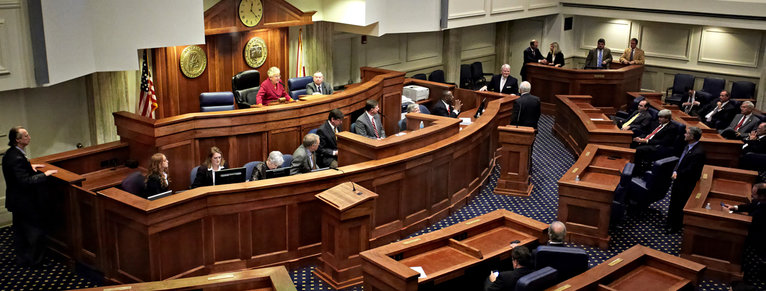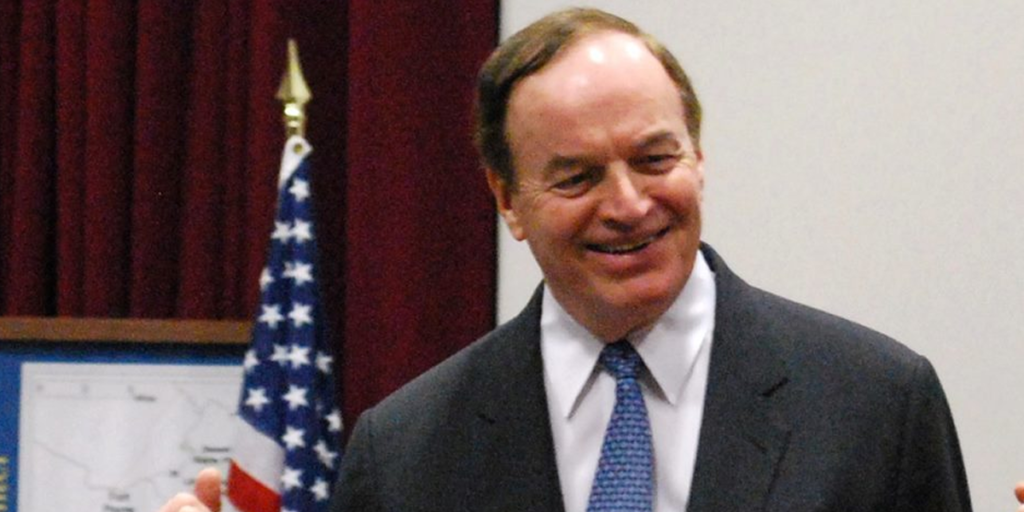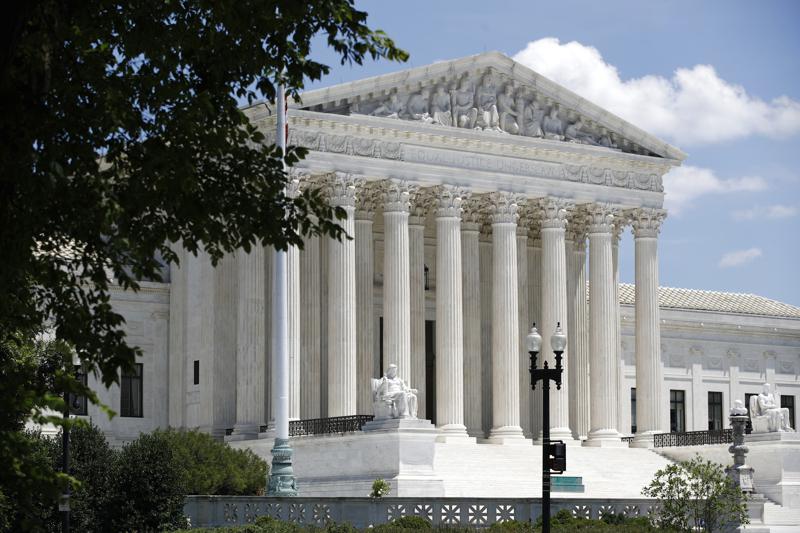Mo Brooks acquires first Senate endorsement from Rand Paul in race to become Alabama’s next U.S. Senator

Congressman Mo Brooks acquired his first endorsement from the Senate Tuesday from Kentucky Senator Rand Paul, according to an announcement from the Brooks campaign. Paul expressed, “I’m happy to endorse my friend Mo Brooks today for the U.S. Senate. Mo has proven time and time again he will stand up for liberty and do what he thinks is right. He will join me in fighting to lower spending, cut the size and power of government, curtail foreign aid, and stop our endless wars overseas. Mo will stand for the Bill of Rights and against the entrenched bipartisan power and big spenders in the Senate just as he has done in the House.” Brooks’ response highlighted their paralleled goals to defend liberty, freedom, and individual liberty as he replied, “I am honored by Senator Rand Paul’s endorsement and look forward to fighting with him in the U.S. Senate to limit and reverse exploding federal government growth; stop endless wars that cost too many American lives while depleting our treasury; promote and defend liberty, freedom and America’s foundational principles that have combined to make America the greatest nation in world history; and lower federal taxes so that American citizens can keep more of their hard-earned money so that they can better take care of themselves and their families.” Endorsed by President Donald Trump, the Senate Conservatives Fund, Alabama Congressman Barry Moore, and many others, Brooks is positioning himself to replace six-term Senator Richard Shelby in Alabama’s race for U.S. Senate next year. 🚨 PRESIDENT TRUMP ENDORSED MY CAMPAIGN🚨 I am honored and humbled by President Trump's strong endorsement. I ask all Americans who share our America First vision to heed and honor President Trump's request by joining our campaign >> https://t.co/ADCPfMqXqL pic.twitter.com/LpvsDcSXoh — Mo Brooks (@MoBrooks) April 7, 2021
Alabama Legislature: What passed and failed on the last day

Alabama lawmakers on Monday concluded the 2021 legislative session. Here is a look at the key developments on the session’s final day: WHAT BECAME LAW MEDICAL MARIJUANA Alabama Gov. Kay Ivey signed legislation creating a medical marijuana program in Alabama. The new law would allow people with one of 16 qualifying medical conditions— including cancer, a terminal illness, depression, epilepsy, panic disorder, and chronic pain— to purchase medical marijuana with the recommendation of a doctor. Sen. Tim Melson, the bill’s sponsor, estimated it will be 15 months before medical marijuana is available in the state. The approval came eight years after a medical marijuana bill in 2013 won that year’s so-called “Shroud Award” for the “deadest” bill of the year in the House of Representatives. WHAT PASSED CURBSIDE VOTING BAN Lawmakers gave final approval to a bill by Republican Rep. Wes Allen of Troy that would forbid election workers from setting up curbside areas for people to vote as well as forbid the setting up of voting machines outside a polling place. The bill now goes to Ivey. The legislation sparked partisan debate as Republicans argued curbside voting is not secure but Democrats argued the state should be expanding voting access instead of restricting it. YOGA IN SCHOOLS Alabama lawmakers approved legislation to lift the state’s decades-old ban on yoga in public schools. It now goes to Ivey. The Alabama Board of Education voted in 1993 to prohibit yoga, hypnosis, and meditation in public school classrooms. The bill by Democratic Rep. Jeremy Gray would allow schools to offer yoga although all poses must have English names. Gray said he was unhappy with Senate-added language that requires parents to sign a permission slip and bans meditation, “associated with or derived from mystical traditions of the East.” THIRD GRADE READING PROMOTION REQUIREMENT After COVID-19 disrupted two school years, Alabama lawmakers voted to delay an upcoming state requirement for third graders to meet reading benchmarks before moving up to the fourth grade. The bill now goes to Ivey. Supporters argued it would be unfair to force the requirement on students who were out of the traditional classroom for long stretches during the pandemic. The bill would move the implementation from the 2021-2022 school year to the 2023-2024 school year. GENERAL FUND Lawmakers gave final approval for the general fund budget for the next fiscal year. The $2.4 billion spending plan is up a modest 3.6% over this year. The budget includes a 2% pay raise for state employees. The spending plan now goes to the governor. WHAT DIED GAMBLING Alabama lawmakers ended the 2021 legislative session without a House vote on a Senate-passed lottery and casino bill. House Speaker Mac McCutcheon said House leaders chose not to bring the bill up for debate on the busy final legislative day after negotiations fell apart earlier this month. Ivey’s office indicated she will only call a special session on the issue if lawmakers can reach an agreement. TRANSGENDER TREATMENT The session adjourned without a House vote on a controversial measure to outlaw the use of puberty-blockers or hormones to help transgender minors with their transition. The Alabama Senate approved the bill in March, but it did not get a vote in the House. Opponents, including parents and trans youth, say such measures interfere with medical decisions and target trans individuals for the sake of politics. Sponsors counter that they are trying to protect children from decisions that should wait until adulthood. Arkansas earlier this year became the first state to enact such a measure. OPPOSING FEDERAL GUN LAWS The session also closed without a House vote on legislation to make it a crime for local police officers to enforce any new federal gun restrictions. The bill is part of a wave of GOP nullification proposals to try to resist any new gun control measures. Senators voted 21-5 for the bill by Republican Sen. Gerald Allen of Tuscaloosa, but it did not get a vote in the House. Republished with the permission of the Associated Press.
Sen. Richard Shelby re-introduces flat tax legislation

As Richard Shelby finishes up his final term as a U.S. Senator, he is re-introducing tax legislation that he has believed in since 1986. The flat tax rate has been on his agenda for decades; he’s introduced legislation to support it during each Congress since the 100th Congress. Shelby introduced the bill in 2017. Called the “Simplified, Manageable, and Responsible Tax (SMART) Act,” the bill establishes a flat tax on all income. The SMART Act establishes a flat income tax of 17 percent on all income. The only exception would be personal exemptions of: $14,590 for a single person; $18,630 for a head of a household; $29,190 for a married couple filing jointly; and $6,290 for each dependent. In a press release, Shelby stated, “Our nation’s current tax code is complex, unclear, and costly to hardworking Americans. Every year on Tax Day, we are reminded of this unfortunate reality. If my legislation, the SMART Act, was in place instead of current law, taxpayers would file a simple, self-explanatory return that’s the size of a postcard. Should Congress pass my bill, every American would be taxed equally and at the same rate. “The recent success of the Tax Cuts and Jobs Act have helped improve our tax code, but I believe the SMART Act would go a step further, resulting in an immediate tax cut for nearly all taxpayers and reducing the size, scope, and complexity of the IRS – rather than broadening and expanding it as our sitting President would prefer. I urge my colleagues to consider and support this legislation for the good of our nation,” continued Senator Shelby. Today, I re-introduced the SMART Act to establish a flat tax. Our nation’s current tax code is complex and costly. With my bill, Americans could expect an immediate tax cut for nearly all taxpayers and a reduction in size and scope of the IRS. https://t.co/AUirRsMaeG — Richard Shelby (@SenShelby) May 17, 2021
Barry Moore’s legislation in support of veterans moves forward in H.R. 2167

Rep. Barry Moore recently introduced two bills that aim to support veterans and their families. The Colonel John McHugh Tuition Fairness for Survivors Act and the Overseeing the G.I. Bill Act of 2021 help provide educational assistance to veterans and their families. These bills are now included in H.R. 2167, which Rep. Mikie Sherrill introduced. The GI Bill National Emergency Extended Deadline Act (GI Bill NEED Act) would “allow the Secretary of Veterans’ Affairs to pause the 10 or 15 years’ time-limit to use GI Bill benefits during times of national emergency and other crises, and restart the clock after it’s safe for veterans to return to school.” Moore stated on Twitter, “We have a responsibility to take care of our nation’s heroes. H.R. 2167 includes two of my bills, the Col. John McHugh Tuition Fairness for Survivors Act & the Overseeing the GI Bill Act of 2021, which bring us closer to securing long-overdue support for our veterans.” We have a responsibility to take care of our nation's heroes. H.R. 2167 includes two of my bills, the Col. John McHugh Tuition Fairness for Survivors Act & the Overseeing the GI Bill Act of 2021, which bring us closer to securing long-overdue support for our veterans. Watch ⤵️ pic.twitter.com/zJplaxp9GZ — Rep. Barry Moore (@RepBarryMoore) May 17, 2021 The House Committee on Veterans’ Affairs, Republicans, stated on Twitter, “We will never fully repay the debt we owe to our Gold Star Families. H.R. 2167 includes @RepBarryMoore’s bill to improve GI Bill benefits for the families of the fallen by providing in-state tuition for participants in the Survivors’ and Dependents’ Education Program.” We will never fully repay the debt we owe to our Gold Star Families. H.R. 2167 includes @RepBarryMoore's bill to improve GI Bill benefits for the families of the fallen by providing in-state tuition for participants in the Survivors' and Dependents' Education Program. Watch 👇 pic.twitter.com/4Tg5jBxegc — House Committee on Veterans' Affairs (@HouseVetAffairs) May 17, 2021
U.S. Supreme Court to take up major abortion rights challenge

The Supreme Court agreed Monday to a showdown over abortion in a case that could dramatically alter nearly 50 years of rulings on abortion rights. With three justices appointed by President Donald Trump part of a 6-3 conservative majority, the court is taking on a case about whether states can ban abortions before a fetus can survive outside the womb. Mississippi, which is asking to be allowed to enforce an abortion ban after 15 weeks of pregnancy, is not asking the court to overrule the 1973 Roe v. Wade decision confirming a woman’s right to an abortion, or a decision 19 years later that reaffirmed it. But abortion-rights supporters said the case is a clear threat to abortion rights. “The court cannot uphold this law without overturning the principal protections of Roe v. Wade,” Nancy Northup, president and CEO of the Center for Reproductive Rights, said in a call with reporters. Even if the court does not explicitly overrule earlier cases, a decision favorable to the state could lay the groundwork for allowing even more restrictions on abortion, including state bans on abortion once a fetal heartbeat is detected, as early as six weeks. The case probably will be argued in the fall, with a decision likely in the spring of 2022 during the campaign for congressional midterm elections. Mississippi’s ban had been blocked by lower courts as inconsistent with Supreme Court precedent that protects a woman’s right to obtain an abortion before the fetus can survive outside her womb. “States may regulate abortion procedures prior to viability so long as they do not impose an undue burden on the woman’s right, but they may not ban abortions. The law at issue is a ban,” Judge Patrick Higginbotham of the 5th U.S. Circuit Court of Appeals wrote in affirming a lower-court ruling that invalidated the law. The Supreme Court had previously turned down state appeals over previability abortion bans. More than 90% of abortions take place in the first 13 weeks of a woman’s pregnancy, according to the Centers for Disease Control and Prevention. John Bursch, vice president of the anti-abortion Alliance Defending Freedom, said the high court has repeatedly held that states can regulate abortions later in pregnancy. Viability “has never been a legitimate way to determine a developing infant’s dignity or to decide anybody’s legal existence,” Bursch said. The justices had put off action on the case for several months. Justice Ruth Bader Ginsburg, an abortion-rights proponent, died just before the court’s new term began in October. Her replacement, Justice Amy Coney Barrett, is the most open opponent of abortion rights to join the court in decades. Barrett is one of three Trump appointees on the Supreme Court. The other two, Justices Neil Gorsuch and Brett Kavanaugh, voted in dissent last year to allow Louisiana to enforce restrictions on doctors that could have closed two of the state’s three abortion clinics. Chief Justice John Roberts, joined by Ginsburg and the other three liberal justices, said the restrictions were virtually identical to a Texas law the court struck down in 2016. But that majority no longer exists, even if Roberts, hardly an abortion rights supporter in his more than 15 years on the court, sides with the more liberal justices. White House press secretary Jen Psaki said the Biden administration backs legislation that would write the Roe decision into federal law, regardless of the outcome of the Supreme Court case. The legislation would put an end to state efforts to ban abortion, Northup said. The Mississippi law was enacted in 2018 but was blocked after a federal court challenge. The state’s only abortion clinic remains open. About 10% of its abortions are done after the 15th week, said Shannon Brewer, the clinic director at Jackson Women’s Health Organization. The case is separate from a fight over laws enacted by Mississippi and other states that would ban most abortions when a fetal heartbeat is detected. Mississippi also is among 11 states with a total abortion ban waiting to take effect if the Supreme Court overturns its Roe decision, according to NARAL Pro-Choice America. A central question in the case is about viability — whether a fetus can survive on its own at 15 weeks. The clinic presented evidence that viability is impossible at 15 weeks, and the appeals court said that the state “conceded that it had identified no medical evidence that a fetus would be viable at 15 weeks.” Viability occurs roughly at 24 weeks, the point at which babies are more likely to survive. But the state argues that viability is an arbitrary standard that doesn’t take sufficient account of the state’s interest in regulating abortion. The Mississippi law would allow exceptions to the 15-week ban in cases of medical emergency or severe fetal abnormality. Doctors found in violation of the ban would face mandatory suspension or revocation of their medical license. Republished with the permission of the Associated Press.
State audit critical of indicted Alabama prosecutor

A former Alabama prosecutor set for trial on ethics charges next month repeatedly failed to handle office finances properly and should have to repay money, a state audit found. Suspended Lee County District Attorney Brandon Hughes did not have procedures for handling cash or credit card transactions and failed to ensure money was being spent only for proper, law enforcement-related needs, according to a report by the Examiners of Public Accounts that cited failures in seven areas. While an office manager was able to avoid paying $3,406 in questioned charges following a hearing, Hughes failed to appear for a hearing and is still liable for an unspecified amount of money related to a unit that collects money from worthless checks, the report said. The state attorney general’s office, which already is prosecuting Hughes on the other charges, will be asked to collect the money, auditors said in the report, which was released Friday. Hughes’ successor as Lee County district attorney, Jessica Ventiere, requested the audit after taking over the job in November, the Opelika-Auburn News reported. “Obviously, the results of this audit have added to an already difficult situation within the district attorney’s office,” Ventiere said in a statement. Hughes, 46, was charged in November with illegally hiring his three children to work for his office and paying private lawyers with public funds to settle a matter that helped him and his wife, authorities said. He also was charged with issuing a subpoena to a company to gather evidence for his own potential defense and perjury. A defense lawyer has said Hughes, who was elected in 2016, maintains his innocence. With Hughes’s trial set for June 21, Judge Pamela Baschab agreed earlier this month to bar the defense from telling jurors Hughes did not know his actions were illegal. Hughes’s lawyers also can’t claim his prosecution was politically motivated, the judge ruled.
Alabama nears approval of ban on so-called vaccine passports

Alabama lawmakers on Monday inched forward to banning so-called vaccine passports that would prohibit proof of a coronavirus vaccination to enter a business, school, or event. The legislation would “prohibit the issuance of vaccine passports” by state agencies and prevent people from being denied entry to businesses, universities, schools, and state agencies if they have not been vaccinated for COVID-19. However, the legislation does not specify any penalty for violations. The Alabama House of Representatives voted 76-16 for the bill. The Alabama Senate must now decide whether to agree to minor House changes. “We need this bill. We don’t want to require people who are going to a business as a customer or going to a football game — or whatever it is — to be mandated to show a vaccine passport,” Rep. David Faulkner, R-Mountain Brook, said. Republicans across the country have backed bans on so-called vaccine passports even though they are not in widespread use anywhere, portraying them as a government intrusion into personal freedom and health choices. Some Alabama House Democrats criticized the bill after House Republicans stripped language that would have made exemptions for nursing homes and other health offices. “When does it become your right to pass on your illness on to someone else,” Rep. Mary Moore, D-Birmingham, said. Rep. Ralph Howard, D-Greensboro, said he is concerned about the people who will knowingly go into crowds without being vaccinated and are “willing to put other folks life in danger.” “Right now I know there are people out there that are not vaccinated that spread COVID,” Howard said. Rep. Paul Lee, R-Dothan, who handled the bill in the House, said businesses could still require customers to wear masks. He also said health offices could ask someone if they had been vaccinated and adjust safety protocols as needed. The idea of so-called vaccine passports is to have a document that shows you were vaccinated against COVID-19. Federal officials say there are no plans to make them broadly mandatory, but some Republican governors have issued orders barring businesses or state agencies from asking people to show proof of vaccination. Hawaii has a limited vaccine passport program for inter-island travel that allows people who received their vaccine shots in the state of Hawaii to skip testing and quarantine rules for travel between the islands. New York officials have launched a digital app New Yorkers can download to show proof of vaccination or a negative COVID-19 test. The Senate approved the bill earlier this session by a 30-0 vote. Republished with the permission of the Associated Press.

